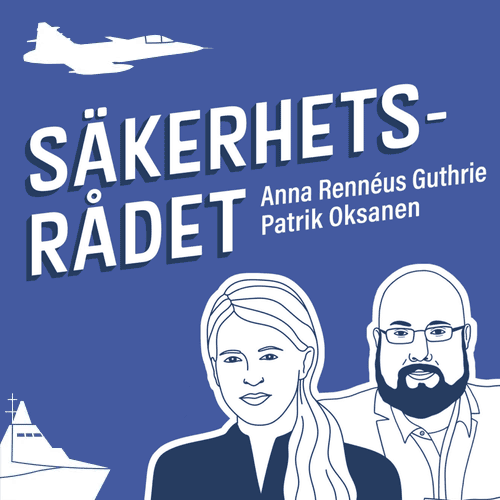Facing the challenges of a hyper-connected and increasingly confrontational global political climate, two trends are discernible in multilateral cooperation that are of particular impact on EU Member States (MS) cooperation in the field of security and defence. First, grand new EU treaties are unlikely, rather MS will prefer flexible overlapping mechanisms they can opt out of or include external partners. The future of multilateral cooperation appears to be flexible enabling frameworks. Second, threats have evolved with technological development, connectivity, and the emergence of notable non-state actors with a global reach. In essence, clearly defined states of war and peace have been replaced by 365 shades of uncertainty, threats and challenges, as the prosperous, yet perceived insecure, ‘new normal.’ Adapting the EU’s tools to effectively and efficiently address security and defence challenges will thus require decisive and bold reform. This article by Henry Wathen presents a set of proposals for adapting the activities now primarily covered under the Common Security and Defence Policy (CSDP). It is the second article in a series of three.
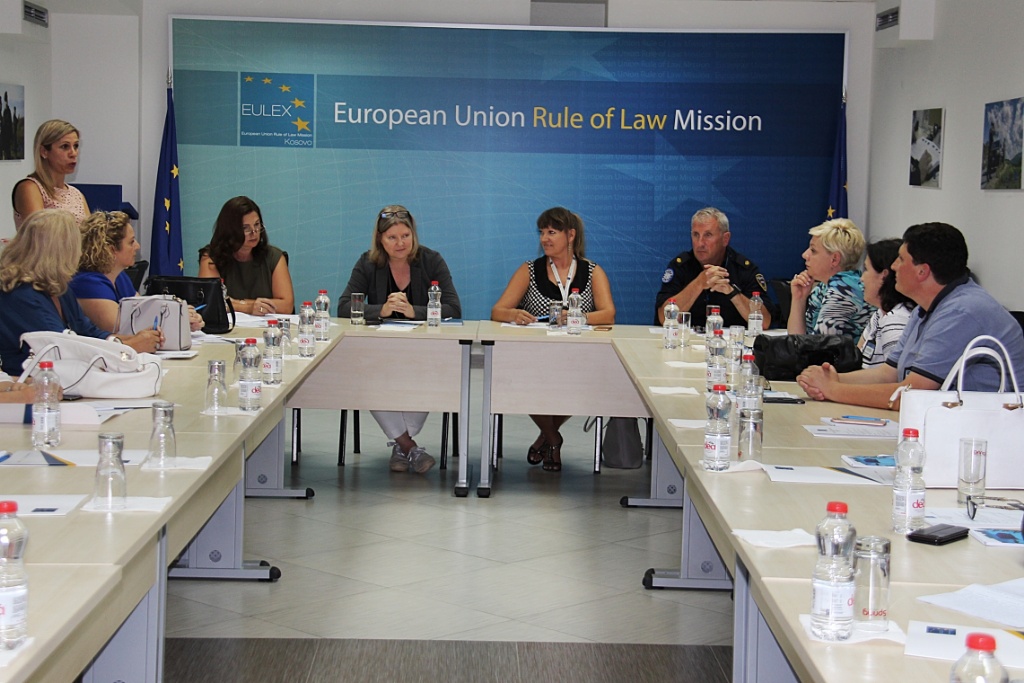
EULEX Kosovo roundtable discussion on womens’ empowerment with Kosovo Correctional Service. ©EULEX Kosovo
Shift training and advice to Delegations and Special Representatives
Softly embedded in the conclusions of the landmark “Global Strategy for the European Union’s Foreign and Security Policy” (1) is a very concrete direction for institutional reform: “… the time has come to consider reducing the number of instruments to enhance our coherence and flexibility.” (2) Non-executive CSDP-missions constitute support to the security and justice sector of countries in the greater European neighbourhood (with its mainstay of operations from Sahel and North Africa to the Levant and Eastern partnership countries). These are coherent manifestations of the stated objective to be surrounded by stable countries.
The effort to support Security Sector Reform (SSR), and the capacity and capability of security actors, the primary focus of CSDP, is questioned when host country governments are overthrown or shift policies and orientation rapidly. Support to the security sectors of partner countries need to be enhanced in two areas: first, being closer linked and harmonised to EU and other donor and development partner activities for broader institutional reform, second, to be more agile organisationally – to be able to shift and adapt its activities with regard to location, scope or scale without political deliberations.
Both areas of improvement (integrating EU instruments and improving their agility) are attainable by phasing out the current model of advisory, training and capacity building CSDP-missions (both police, justice- and military oriented) and gradually establishing and expanding advisory teams reporting to the respective EU Delegations (EUD) or when relevant, the EU Special Representatives (EUSR).
That being said, two civilian CSDP-missions differ in scope and are not easily embedded into the European External Action Service. EULEX Kosovo with its continued (albeit now small scale) executive law enforcement mandate, deserves particular attention and elaborate shielding from political pressure. Also, differing from the mainstay of CSDP, the EU Monitoring Mission in Georgia (EUMM), is best placed remaining operationally impartial and hence should be autonomous from the EU’s political instruments. EUMM Georgia’s raison d’être is to act as a confidence building and stabilising element with buy-in also from the Russian Federation and Georgian separatists. These actors do not have diplomatic relations with the government of Georgia, with whom the EU has an Association Agreement and a Deep and Comprehensive Free Trade Agreement since 2015.
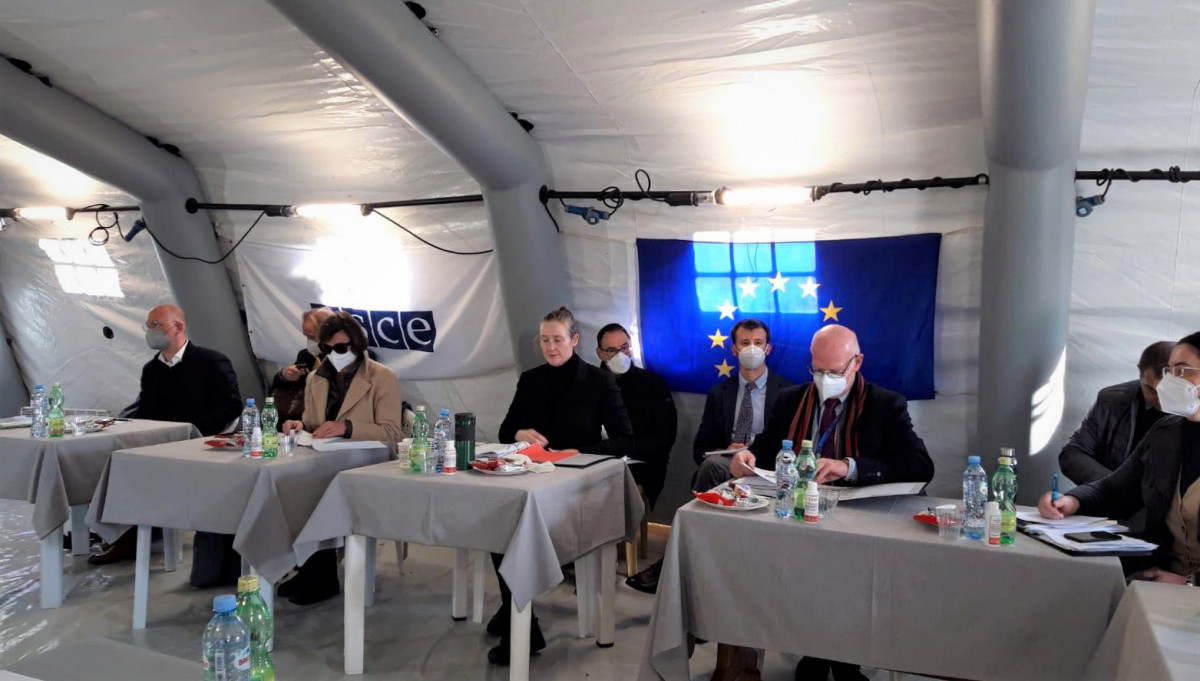
EUMM Georgia and OSCE co-facilitated meeting in Ergneti (field level conflict management). ©EUMM Georgia
The overall budgetary means provided for CSDP operations being divided per Mission by specific decisions may be a source of friction between MS, as priorities differ, roughly speaking between a southern tier of MS geographically closer to Africa and the Eastern rim of MS prioritising resources spent in Eastern Partnership countries and tougher line towards Russia. A pragmatic mitigation of this issue is to instead of increasing the funds for commonly financed operations, reduce them in volume and fill the gap with modular teams directly funded by MS (one lead, with possible specific cost sharing arrangements). Thus, MS can ensure that their budgetary means are spent to address national security interests, albeit preferably through the frame and overall coordination of an EUD or EUSR.
In the above-mentioned need for streamlining and improving coherence among instruments, imagine EUDs having functions in the nature of “Senior SSR Adviser, ” “Chief Military Adviser,” or “Chief Law Enforcement Adviser.” An effort to reduce the number of actors and towards colocation and integration with the political representatives for the EU in theatre, should also facilitate the crucial aspect of advisers with law enforcement and justice competences having frequent and substantial cooperation interfaces with EU Home Affairs instruments such as Frontex, Europol and Eurojust, whose importance may increase significantly.
At present delegations and EUSR-teams are small outfits with little capacity to expand their sphere of work, without reinforcements. The confusing (and to field staff frustrating) slogan of ‘doing more with less’ has hopefully been weeded out from EU parlance. Aforementioned proposals to shifts the lead for security sector reform to delegations and possibly EUSRs in EU’s expanded neighbourhood from Bamako and Baghdad to Kyiv should also be accompanied with significant personnel reinforcements, not only with security and justice competence as mentioned, but also with an enhanced capacity to coordinate MS activities and provisions of resources. Added security and justice focused project management competence is also in high demand at delegations, as is procurement and administrative capacity.
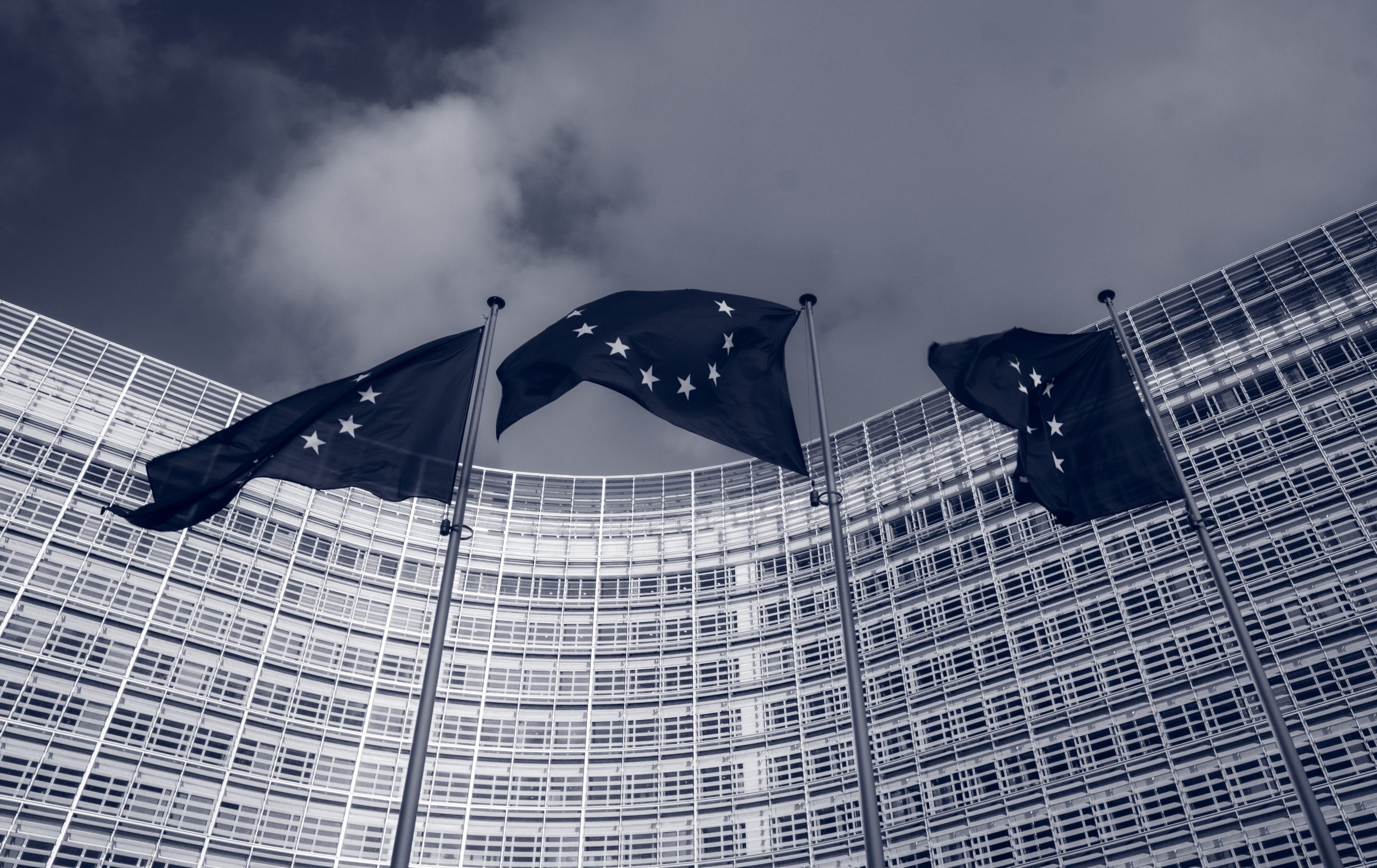
EU Commission headquarter in Brussels. Foto: Christian Lue på Unsplash
Procurement: Achilles heel of missions
With good intentions (or at least necessity) the EU has put in place elaborate processes to ensure transparency in procurement and counter fraud and mismanagement. However, lessons identified throughout the history of CSDP scream in unison about the complexity and sluggishness of procuring goods and services. The body of regulations put in place constitute a major hurdle in establishing missions, as well as for maintaining proper equipment and updating stocks. Staff on missions working on their personal computers and software for prolonged periods is not unheard of.
Only a certain degree of boldness in administrative reform can bring progress. Significant improvements are possible if transferring the authority to the field level. In administrative terms this means moving from ex-ante to ex-post accountability, i.e. the responsibility of procurement should lie with the principals in theatre and not with “Brussels,” i.e. the European Commission. The existing practice of Head of Missions in CSDP missions being personally liable for financial accountability may also be implemented with the delegations and EUSR as part of taking the lead for the activities currently managed by CSDP missions.
Specialised teams – rapid and flexible provision of staff and equipment
MS have identified the need for flexible and modular additions to missions and in-theatre efforts. This concept referred to as ‘specialised teams’ should be fully and broadly operationalised over the next five years. Again, flexibility is best ensured if teams and equipment are fully financed by MS in agreement with the principals in theatre, ideally given operational control of these resources.
Relying on an EU-wide recruitment with so called calls for contribution, would hardly give the required agility in launch. Rather, the decision-making process for launch and deployment should lie with a memorandum of understanding (MoU) between specific MS and the principal in-theatre. Notably, MS may always use their prerogative to deploy assets under a fully autonomous national aegis, in such cases coordination with EU actors in situ will always be of paramount importance.
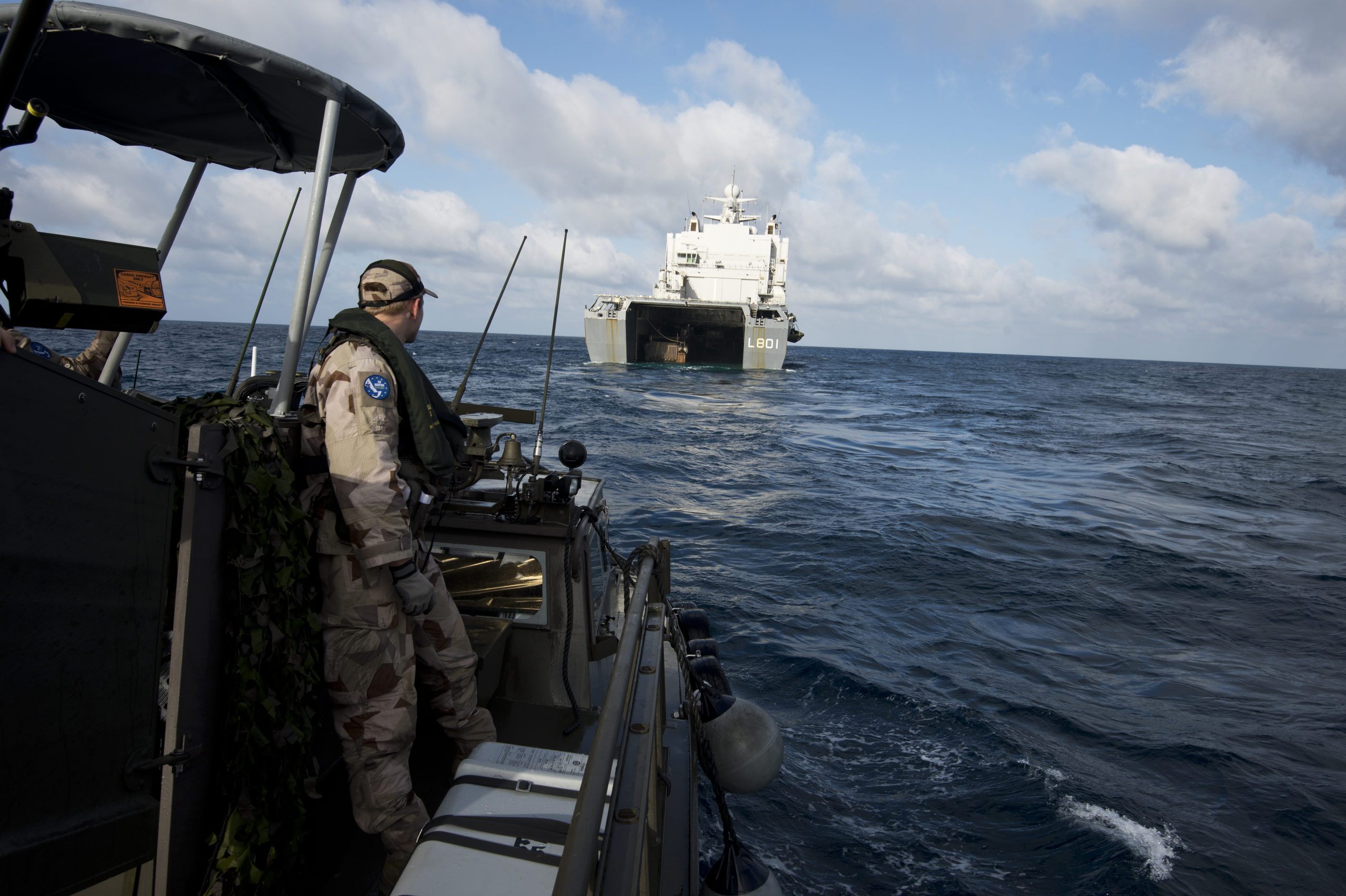
Swedish assualt craft is to embark HNLMS Johan de Witts doc after a common mission, as a part of EU Naval Force readiness task.
Summary and recommendations:
In order to reach the agreed upon objectives of enhancing flexibility for rapid and robust responses the following measures should be implemented in the next five years:
- Capacity-building (training and equipping) and strategic advice for partner countries’ security structures to be integrated with EEAS activities under EU delegations or EUSRs. While EUMM Georgia and EULEX Kosovo should remain under Council strategic direction to safeguard operational impartiality and shield from inappropriate political influence and pressure.
- Shift the authority for procurement of goods and services under a designated value to principals in the field (EU delegations or EUSRs).
- Specialised teams to be deployed, selected and funded by MS, rather than through a centralised process. They can be integrated (to varying degrees) with the EU actors in the field/designated EEAS body, through MoUs signed by the principals on the ground.
While a broad consensus among MS and in the EU structures for change is evident, some seemingly drastic reform is necessary to live up to the broad and ambitious objectives that MS agreed upon after the EU High Representative launched the 2016 Global Strategy ,articulated in numerous council conclusions as well as the and the Implementation Plan for Security and Defence (3) and the Civilian Compact (4). The shared acknowledgment of the dire strategic picture should be sufficient motivation to implement lessons identified long ago.
Henry Wathen
Wathen has served in multiple EU-missions in the Balkans, Middle East and the Caucasus from 2003 to 2020. Currently he is studying Theology at the University of Uppsala.
A forthcoming article will provide recommendations for future military operations by MS and partners. The first article can be found here.
Notes:
(2) Ibid., p. 114.
(3) “Implementation Plan on Security and Defence” 14 November 2016.
(4) “Civilian CSDP Compact” 9 December 2019.
